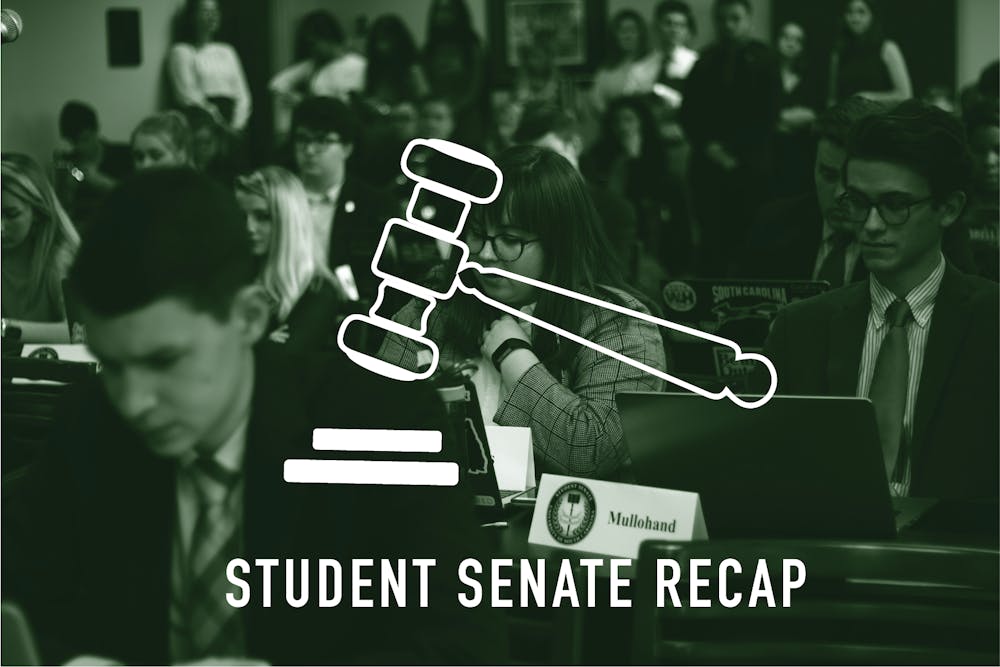Interim university President Harris Pastides updated the student senate on the “debacle” at the Eastern Illinois game's student gate and the university's mental health initiatives.
Pastides said he had spoken with parents of students involved with the incident. The incident was caused by “a confluence of circumstances that, somewhere between athletics, Student Affairs, campus security, malfunctioning machines, also students coming in through a gate that wasn't necessarily meant for them, depending on where they were seated,” Pastides said.
He said he apologizes for the incident.
“That’s what we do as president. It’s to not be afraid to say we did something wrong,” Pastides said.
Furthermore, in light of the recent loss of a student to suicide, Pastides said the univeristy is “redoubling” its efforts to “hire an adequate number of therapists with clinical training that are specialized in the needs of young people” and who “specialize in the range of issues that affect people.”
USC is looking into additional, affordable insurance plans for students to have access to counseling 24/7, Pastides said.
“Sometimes you just need immediate access. It's like you can call police, you can call fire, you can call an ambulance and mental health is serious like that,” Pastides said.
Additionally, after South Carolina lawmakers wrote a letter asking USC to “eradicate” curriculum related to Critical Race Theory, Student Senator Noah Glasgow sponsored a resolution that would have rejected the attempt of lawmakers to influence USC academics.
The resolution failed to pass.
“I took issue with members of Congress influencing, which is the word that we decided on, trying to dictate university policy that they know nothing about because they don’t have, one, any background. They don’t work at the university,” Glasgow said.
According to Glasgow, who is an African-American Studies minor, the topic of Critical Race Theory is surrounded by lots of confusion, and many people still do not understand what it is.
The resolution failed to pass after a tie-breaking vote by Speaker of the Senate Morgiana McDevitt.
According to McDevitt, she did not vote to pass the resolution due to the precedent of the Speaker of the Senate being a non-voting facilitator of debate.
“When this role was created, it was precedent when there is a contentious tie vote between the body, that I vote ‘nay’ in light of how contentious the legislation or topic of interest was,” McDevitt said.
“I don’t agree with (the precedent), but the speaker was well within her rights, and I support the speaker and anything that she does,” Glasgow said.
McDevitt did say that she stood “very firmly” with what Speaker Tempore Morgan McDonald had said during the debate. According to McDonald, the most important point of the resolution was to make a point that politicians should not be able to influence what classes students can or cannot take, especially given the precedent it can create.
Finally, a bill eliminating application fees for students to campaign for student government executive officer and senator positions was adopted unanimously. The bill had previously been proposed in Spring of 2021.
Historically, students who wanted to run for office had to pay a $5 fee if they were running for a senate seat and $50 if they were running for an executive position. However, USC was the only SEC school imposing that financial requirement.
“There might be some students that really want to participate in the executive, but they just can’t cut the $50, or even the $5 if they want to participate in senate last minute. That shouldn’t exclude you,” Glasgow said.

